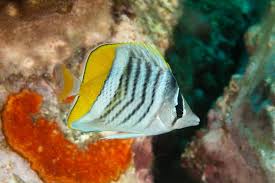The dragon (龙, Lóng) has long been revered as a symbol of power, prosperity, and abundance in Chinese culture. Unlike the fire-breathing monsters in Western mythology, the Chinese dragon is a benevolent and auspicious creature that brings fortune, success, and harmony. Throughout history, the dragon has been associated with imperial authority, economic growth, and personal prosperity, making it a powerful emblem in art, architecture, business, and Feng Shui.

This article explores the significance of the dragon as a symbol of wealth and prosperity, examining its representation in imperial traditions, economic beliefs, spiritual practices, and modern business culture.
1. The Dragon as an Imperial Symbol of Wealth and Power
In ancient China, the dragon was seen as a representation of the emperor’s divine right to rule. The five-clawed dragon (五爪龙, Wǔzhǎo Lóng) was reserved exclusively for the emperor and his family, while nobles and officials could only use four-clawed dragons in their decorations.
1.1. The Emperor as the “Son of the Dragon”
- Chinese emperors were often referred to as “龙的传人” (Lóng de Chuánrén), meaning “descendants of the dragon.”
- Imperial robes, palaces, and thrones were adorned with golden dragon motifs, symbolizing absolute power and prosperity.
- The Dragon Throne (龙椅, Lóngyǐ) was the seat of the emperor, representing his ability to control the wealth and destiny of the nation.
1.2. The Forbidden City and Dragon Imagery
- The Forbidden City in Beijing, the imperial palace of the Ming and Qing dynasties, contains over 13,000 dragon carvings.
- The Nine-Dragon Wall (九龙壁, Jiǔlóng Bì) is a famous structure featuring nine large dragons, each representing different aspects of prosperity and fortune.
- Dragon sculptures were placed on rooftops and doors to protect the palace from negative energy and bring endless prosperity.
2. The Dragon and the Flow of Wealth in Feng Shui
In Feng Shui, the dragon is one of the most powerful symbols for attracting wealth, success, and financial stability. It is often used in homes, businesses, and temples to enhance the flow of positive energy (气, Qì).
2.1. The Dragon and Water: A Source of Wealth
- In Feng Shui, dragons are strongly associated with water, which symbolizes wealth and abundance.
- Placing a dragon statue near a water feature (such as a fountain or aquarium) is believed to increase financial luck and prosperity.
- The Dragon Turtle (龙龟, Lóngguī), a combination of a dragon and a turtle, is a popular Feng Shui item used to attract long-term wealth and business success.
2.2. The Placement of Dragon Symbols for Wealth
- Facing the East: Dragons should be placed in the eastern part of a home or office to align with the rising sun and new opportunities.
- Paired with a Pearl or Crystal: A dragon holding a flaming pearl symbolizes limitless wealth and wisdom.
- Gold Dragon Figurines: Many business owners place gold dragon statues in their offices to attract financial success and ward off competitors.
3. Dragons in Chinese Mythology and Legends of Prosperity
Many ancient Chinese myths and legends portray dragons as divine beings that bring fortune to the people.
3.1. The Dragon Kings and the Wealth of the Seas
- The Dragon Kings (龙王, Lóngwáng) were believed to control the oceans, rivers, and rain, which were essential for agriculture and economic prosperity.
- Farmers often prayed to the Dragon Kings for abundant harvests and prosperous trade.
3.2. The Legend of the Yellow Emperor and the Dragon
- The legendary Yellow Emperor (黄帝, Huángdì) is said to have been carried to the heavens by a dragon, symbolizing his eternal prosperity and divine wisdom.
- His association with the dragon reinforced the belief that rulers and successful leaders possessed the spirit of the dragon.
4. The Dragon as a Business Symbol of Wealth and Success
In modern China, dragons remain a highly respected symbol in business culture, representing entrepreneurial success, market dominance, and financial prosperity.
4.1. The Dragon in Chinese Business Names and Logos
- Many companies, banks, and corporations use dragon symbols in their names and logos to project power, strength, and economic growth.
- For example, “China Dragon Securities” and “Golden Dragon Group” use the dragon to convey trust and financial success.
4.2. The Dragon in the Stock Market and Economy
- The term “Dragon Economy” refers to China’s rapid economic rise, symbolizing its strength and prosperity.
- During major economic events like the Chinese New Year, stock markets often experience a “Dragon Rally,” where investors associate the dragon with financial growth.
4.3. The Dragon Dance and Business Prosperity
- Dragon dances (舞龙, Wǔlóng) are performed during business openings and festivals to bring wealth and success.
- Businesses invite dragon dancers to bless their stores and offices, believing it will increase customer flow and profit.
5. The Dragon in Jewelry and Wealth Preservation
Dragons are frequently depicted in Chinese jewelry, coins, and financial artifacts, symbolizing wealth protection and generational prosperity.
5.1. Dragon Gold Coins and Wealth Preservation
- Ancient Chinese emperors minted gold coins with dragon engravings to signify imperial wealth.
- Today, gold and silver dragon coins are popular investments, believed to attract financial stability.
5.2. Dragon Rings, Bracelets, and Amulets
- Many wealthy individuals wear dragon-shaped gold rings or jade pendants to enhance personal prosperity.
- The Double Dragon Bracelet (双龙手镯, Shuānglóng Shǒuzhuó) is a common piece of jewelry symbolizing wealth accumulation and success.
Conclusion: The Enduring Legacy of the Dragon as a Wealth Symbol
From imperial dynasties to modern businesses, the Chinese dragon has always been a potent symbol of wealth, success, and abundance. Whether in Feng Shui practices, traditional mythology, business culture, or jewelry, the dragon remains deeply embedded in China’s economic and spiritual beliefs.
Today, as China continues to thrive as a global economic powerhouse, the dragon continues to symbolize unlimited potential, financial success, and a prosperous future.
Leave a Reply